How Valuable Is It to Have a Keyword in Your Domain URL?
No matter your site’s content, one choice will always come first: its unique location on the web. While the importance of relevant URL keywords to SEO optimization has been a matter of some debate, it’s clear that a page’s URL fills a number of important roles. After all, this URL appears on search engine results pages with users’ search terms highlighted. The readability of a link plays a key role in social sharing as well. Just how often do relevant keywords appear in the top page results for various industries? How important are URLs to some of the most successful and highly ranked sites out there? We examined the top page results across 10 major verticals to see just how these websites are utilizing keywords in their URLs. Continue reading to see where keywords have been most successful in business, technology, and more.
How Often Do Relevant Keywords Appear in Top Page Results?

Should you be sure that keywords relevant to your content are included in your pages’ URLs? It may depend on the subject matter of your sites. We found that debt sites were the most likely to use industry-specific keywords in their URLs – 76 percent of top page results in this category were for pages that included these keywords, including the No. 1 result: the Wikipedia page for “debt.” However, other verticals came close to debt’s use of keywords, such as business (73 percent), and food and beverage (71 percent).
Email software results were the lowest, with only 47 percent of top page results in this category using relevant keywords in their webpage addresses. Top pages related to government and trade were also less likely to include keywords in their URLs – only 52 percent of top page results did.
Use of Business Keywords in URLs
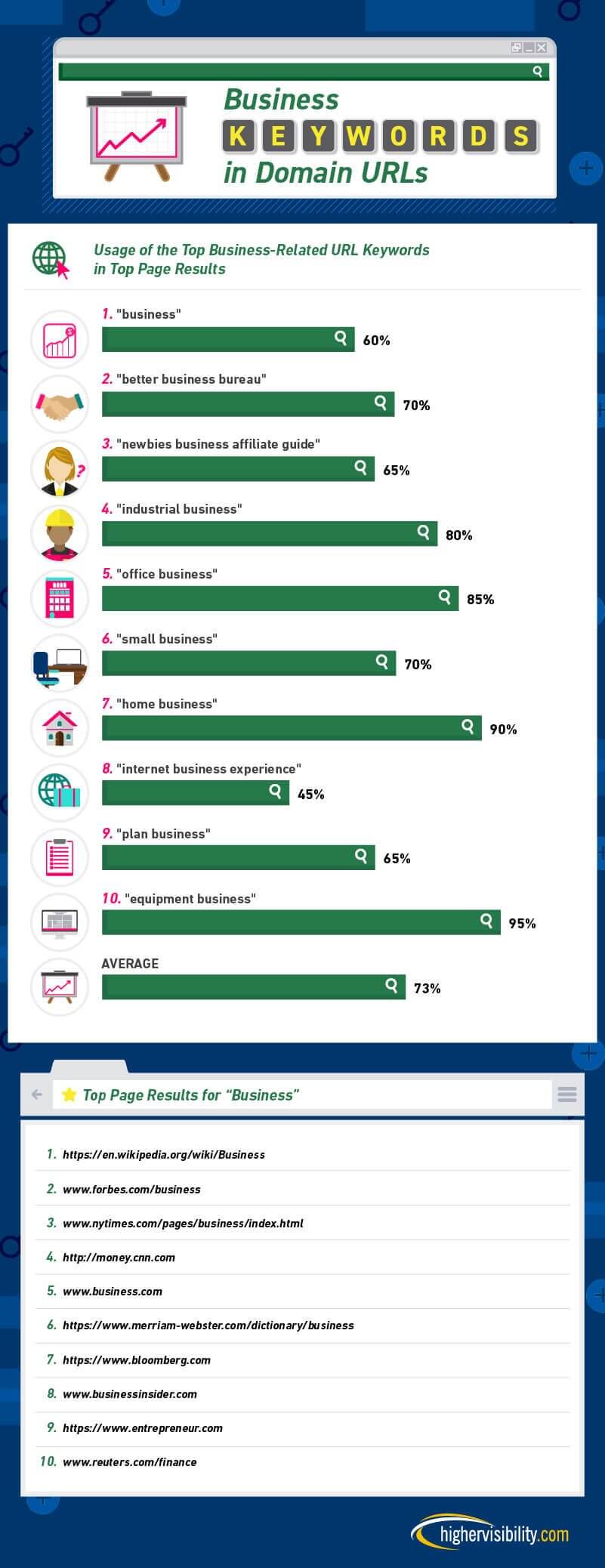
Top page results related to business were most likely to include business keywords in their URLs, but within this subject, some more specific categories stood out. Among the top page results for “equipment business” and “home business” search terms, 95 and 90 percent of URLs included keywords related to these topics, as did 85 percent of top URLs for “office business” keywords.
However, results for just “business” only used these keywords in their webpage addresses 60 percent of the time, and “internet business experience” was the least likely to feature these terms in URLs, with only 45 percent of top page results including these terms in their addresses.
Debt-Related Keywords and Top Page Results
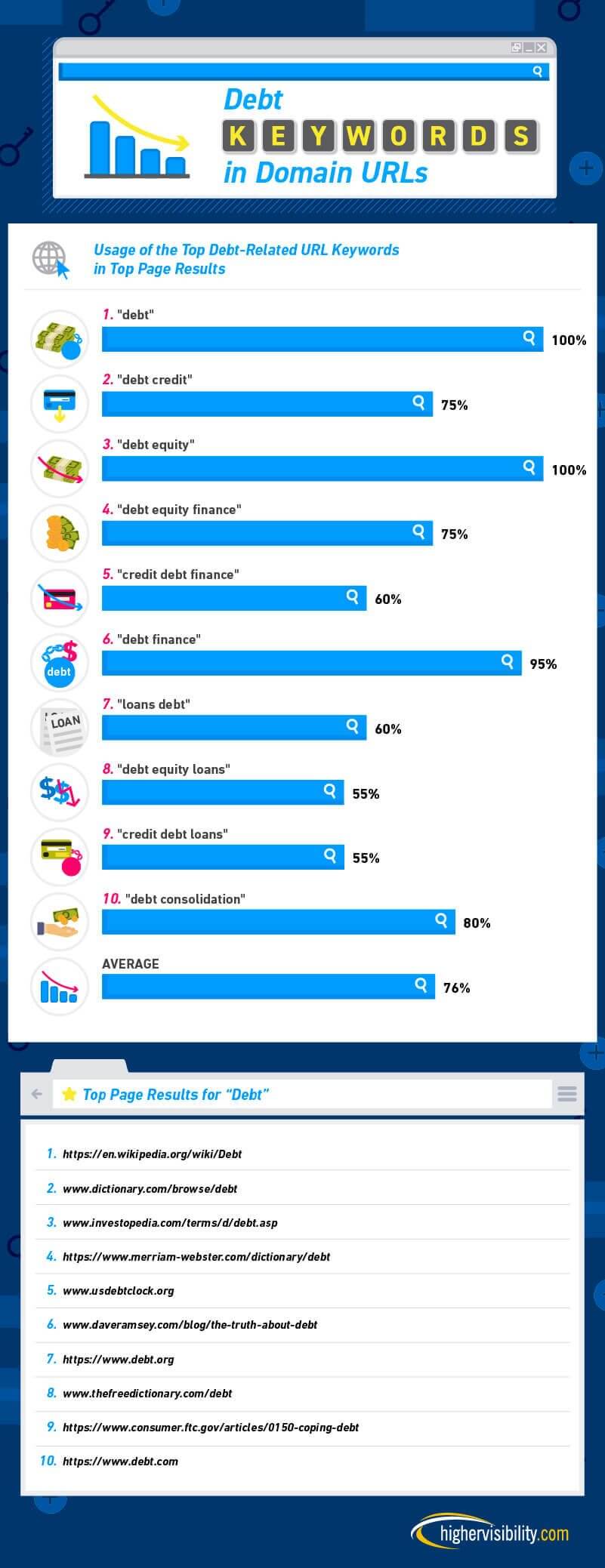
Top page results for the top keywords related to debt included debt-related terms in URLs 76 percent of the time on average, but URL keywords were especially relevant to several areas. For instance, 100 percent of the top page results related to “debt” and “debt equity” had URLs that featured these terms, as did 95 percent of top page results for “debt finance.” “Credit debt loans” and “debt equity loans” (55 percent) were areas far less likely to include relevant keywords in top page results URLs.
Most Used Keywords for Plumbing Webpages
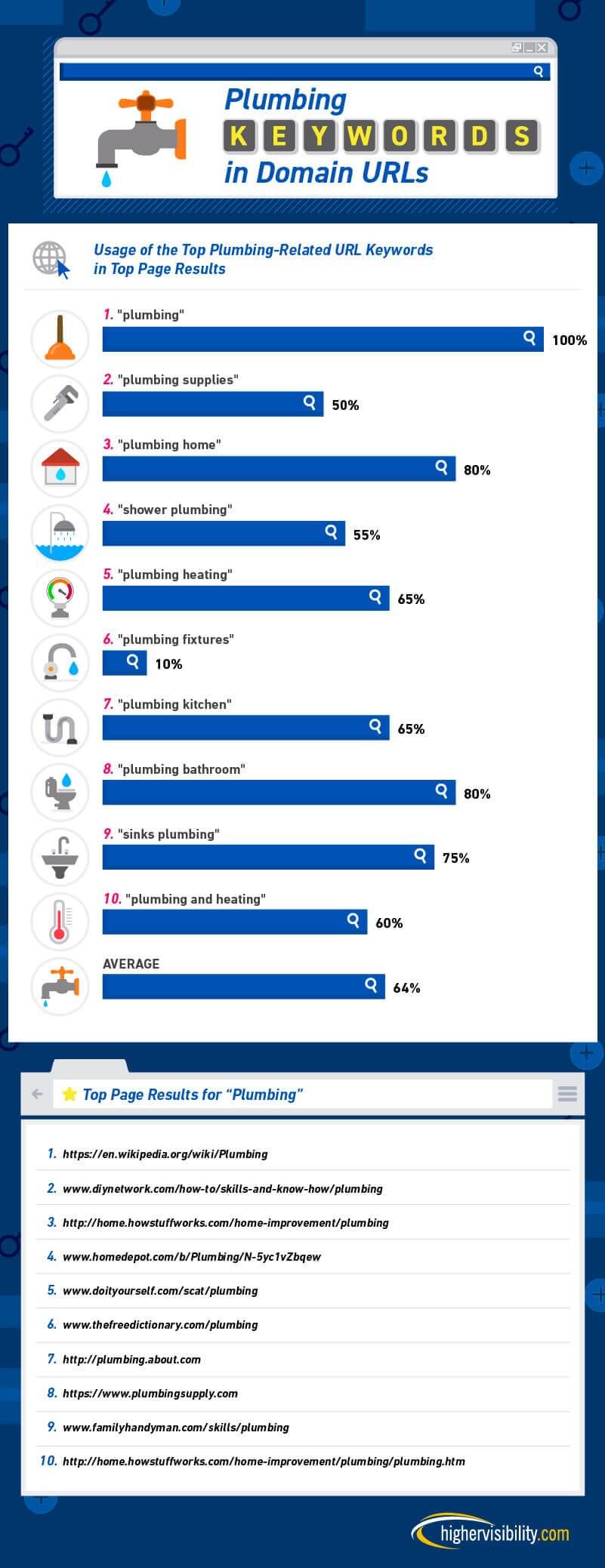
It turns out, 100 percent of top page results related to “plumbing” included this term in their URLs, while additional keywords were less likely to be used in webpage addresses. “Plumbing supplies” results saw these keywords used in the URLs of top page results only 50 percent of the time. Meanwhile “plumbing fixtures” results used these keywords in their addresses 10 percent of the time.
Software Searches and Most Used Keywords in URLs
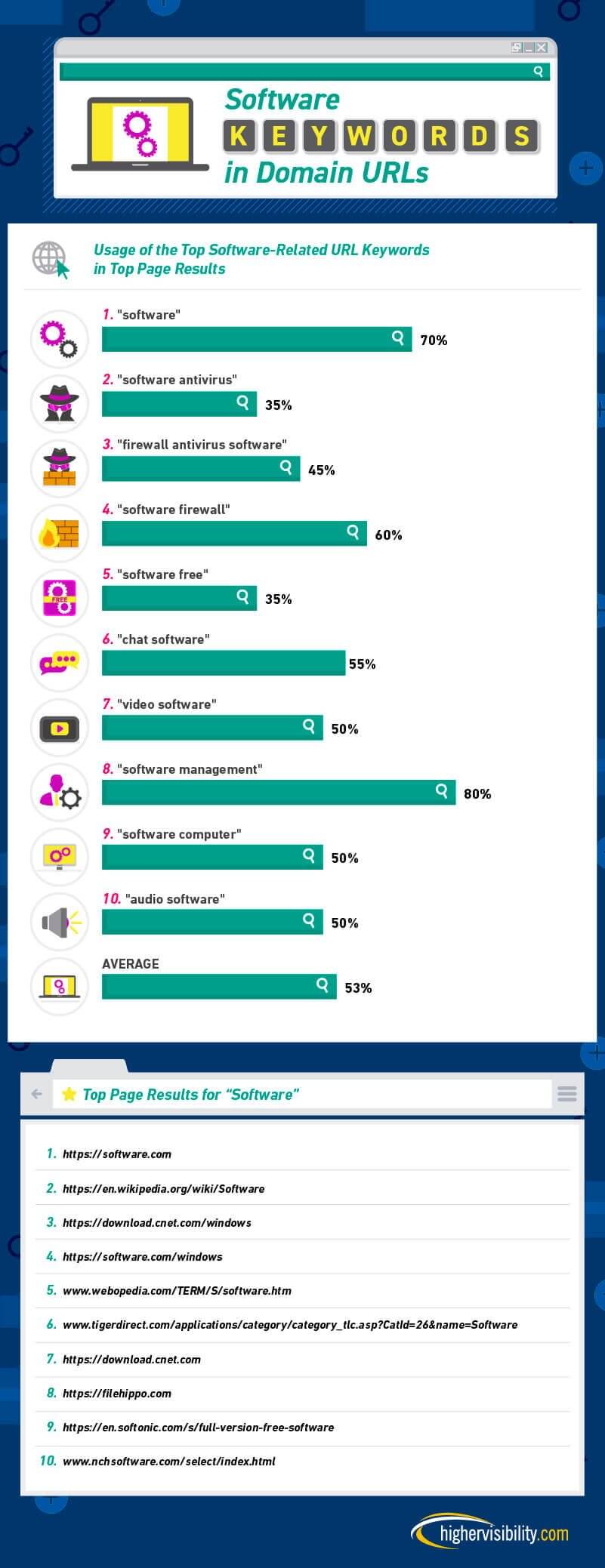
Top page results for “software” included this keyword in URLs 70 percent of the time, but this fell sharply for nearly all more specific searches. While “Software management” saw 80 percent of top page results include this term in webpage addresses, the rest of the top software-related keywords all saw 60 percent or less usage. Results for “software antivirus” and “software free” both used their URL keywords 35 percent of the time.
The Use of Food and Beverage Keywords Among Top Page Results
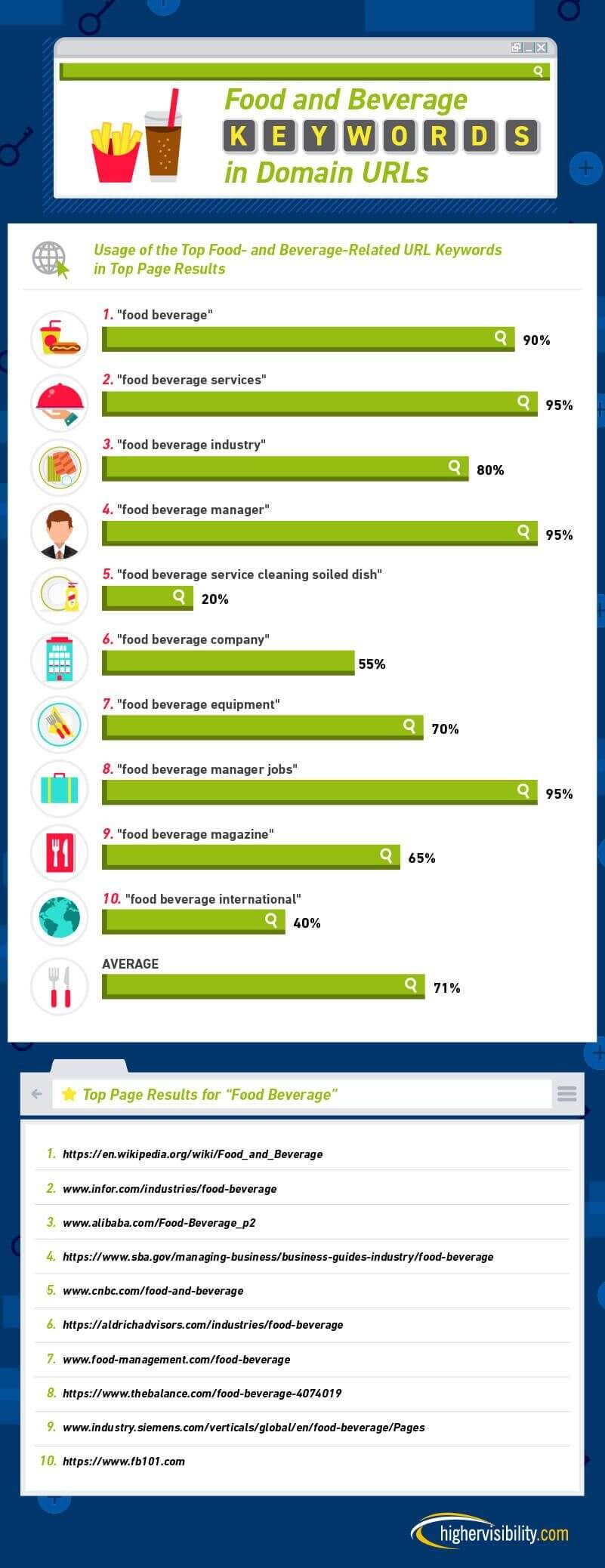
Ninety percent of the top page results for “food beverage” included these keywords in their URLs. Among searches for “food beverage services”, “food beverage manager” and “food beverage manager jobs”, 95 percent of results included these terms in the top page results URLs. Results for “”food beverage service cleaning soiled dish” (20 percent) was the least likely to make use of these keywords in their URLs.
Email Software Pages More Likely to Use URL Keywords
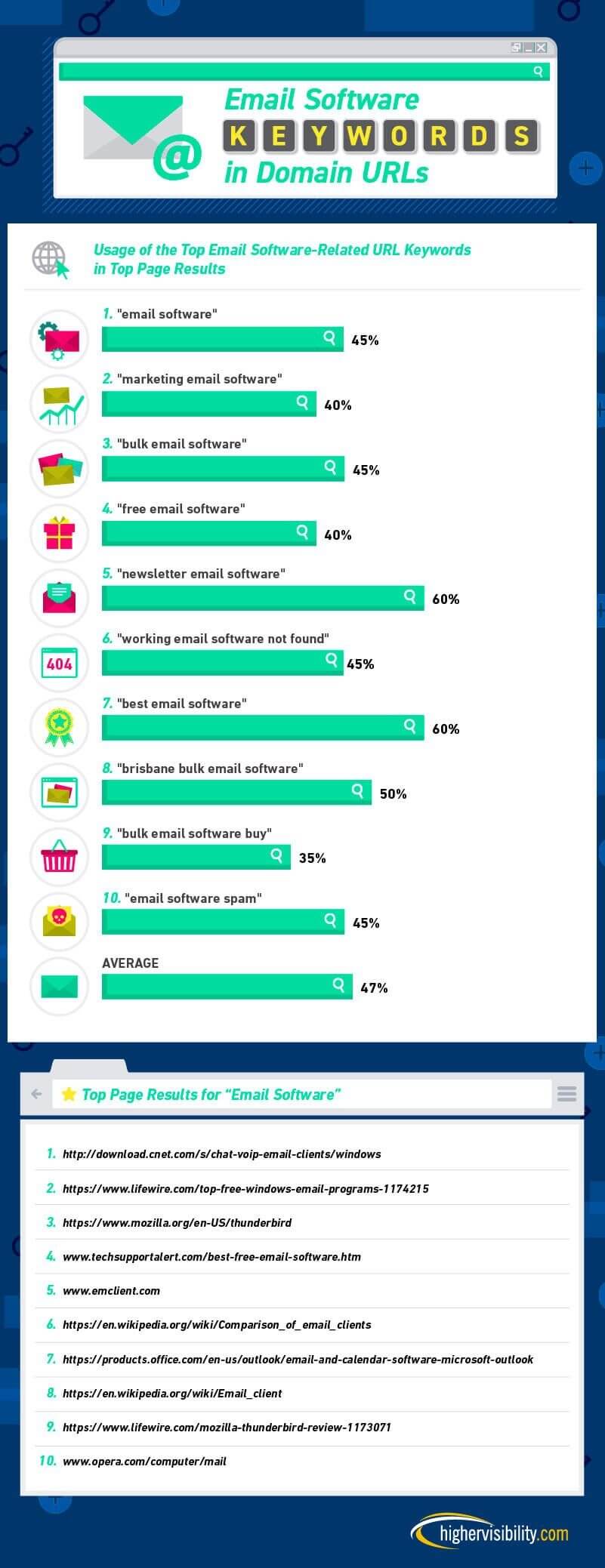
While only 45 percent of the top page results for “email software” used these keywords in webpage addresses, 60 percent of results for “best email software” and “newsletter email software” made use of these terms. In fact, “email software,” had the lowest overall usage of URL keywords. No set rose above 60 percent of top page results using these terms in their URLs.
Hotel Keywords: Topical and Regional Differences
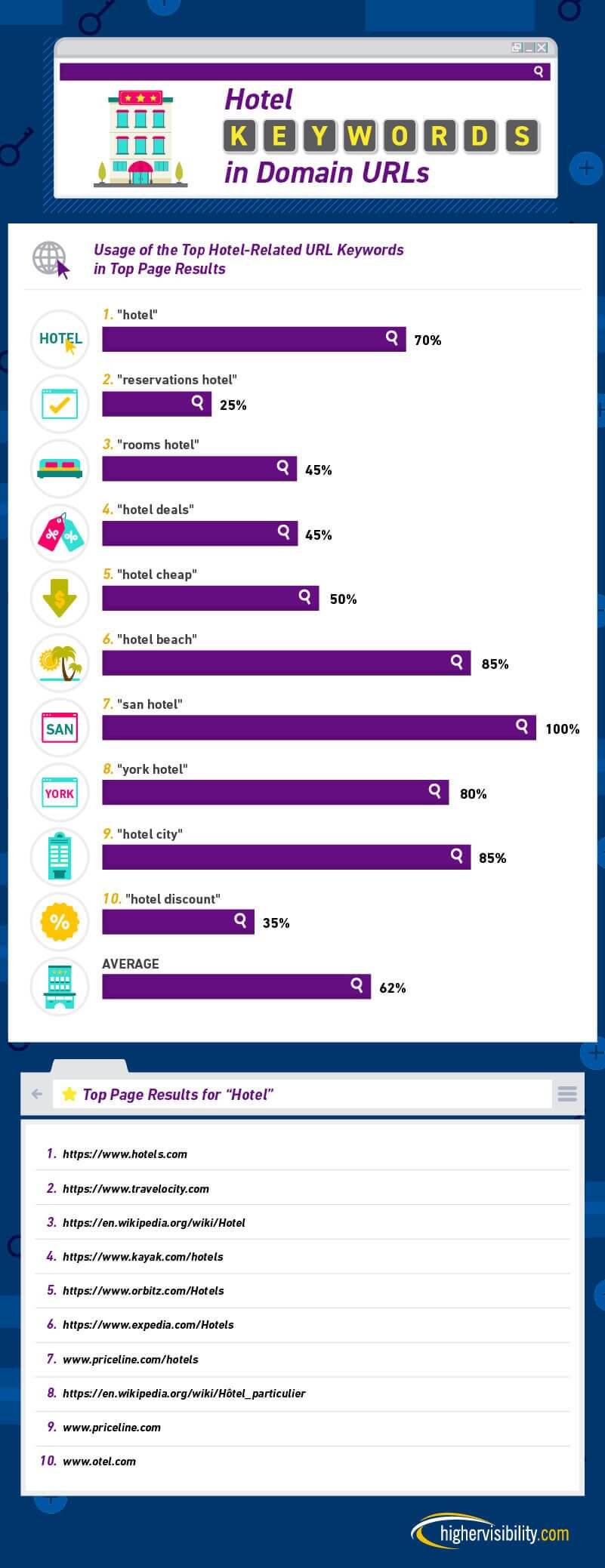
Only 70 percent of top page results for “hotel” included this term in their URLs – popular booking sites, such as Travelocity.com have made it into the top page results on this topic without needing to include the term in their addresses. Additionally, 100 percent of results for “san hotel” (as in “San Francisco” or “San Diego”) included these keywords in page URLs, along with 85 percent of results for “hotel city” and “hotel beach.” However, just 25 percent of results for “reservations hotel” used these terms.
Credit Card Keywords and Top Page Results
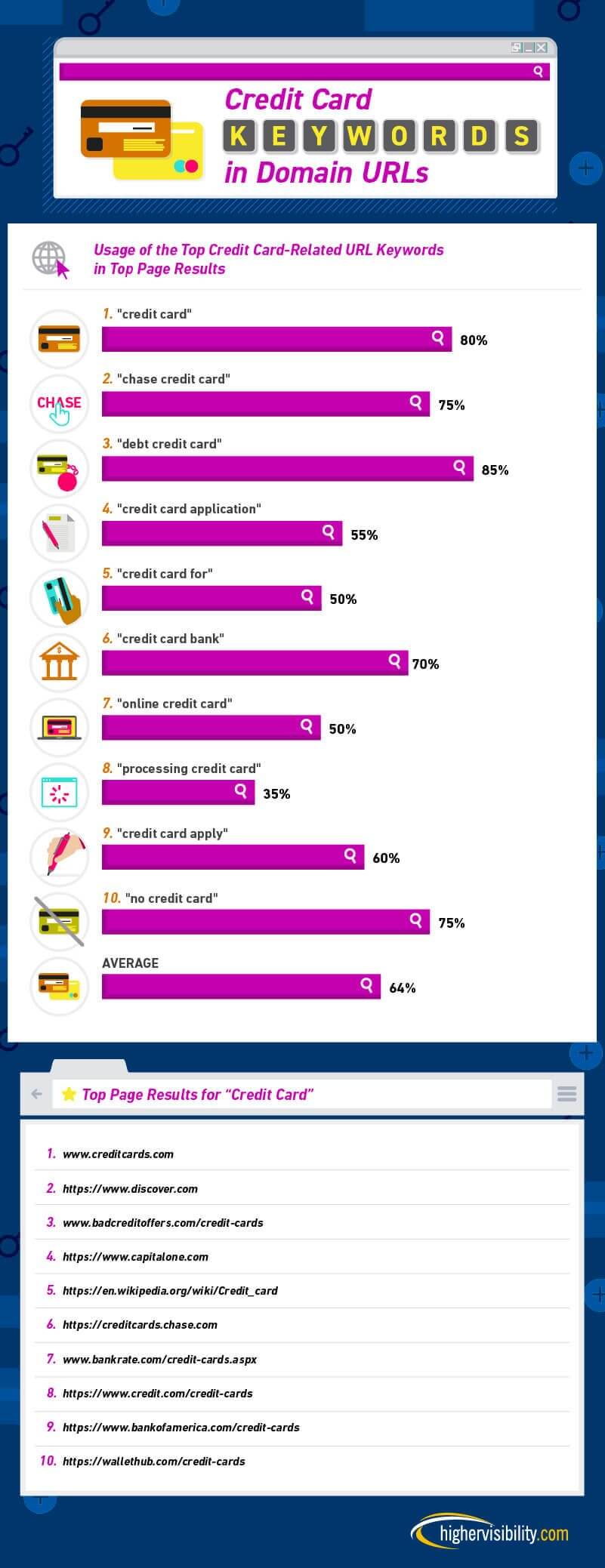
While 80 percent of the top-ranked search results returned for “credit card” included these terms explicitly in their URLs, such as creditcards.com, some major card issuers (Discover.com and Capitalone.com) made it to the top page results without using these keywords in their webpage addresses. In fact, 75 percent of top page results for “chase credit card” (as in Chase Bank)and “no credit card” included these terms in URLs. On the lower end, just 35 percent of top page results for “processing credit card” used such keywords as a part of their webpage addresses.
Weight Loss Keywords in URLs
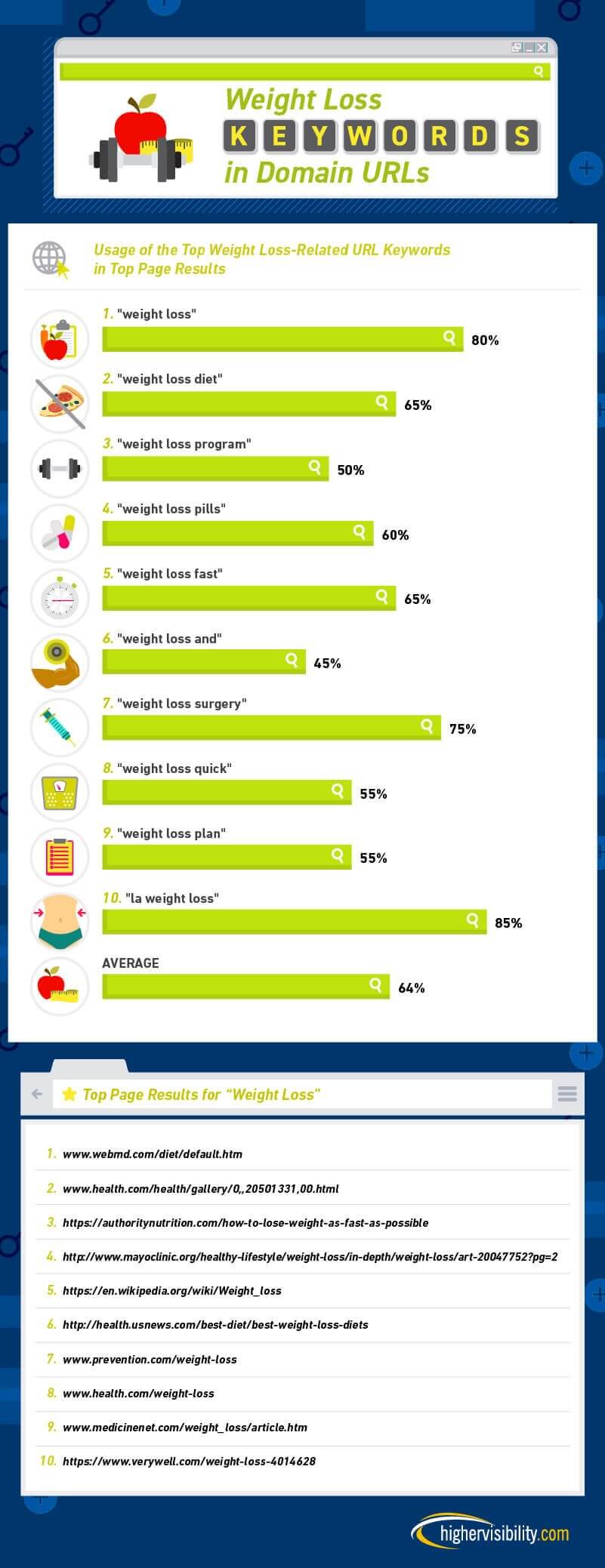
The No. 1 result for “weight loss” was a WebMD page on dieting, which didn’t include these terms in its URL at all. However, the majority (80 percent) of top page results for “weight loss” do make use of these keywords in their webpage addresses, including pages for the Mayo Clinic, Prevention magazine, and Health.com. Further, 85 percent of top page results for “la weight loss” (as in the LA Weight Loss Program) also included these keywords. However, just 45 percent of the highest-ranked results for “weight loss and” used these keywords in their URLs.
Government and Trade Keywords in Top URLs
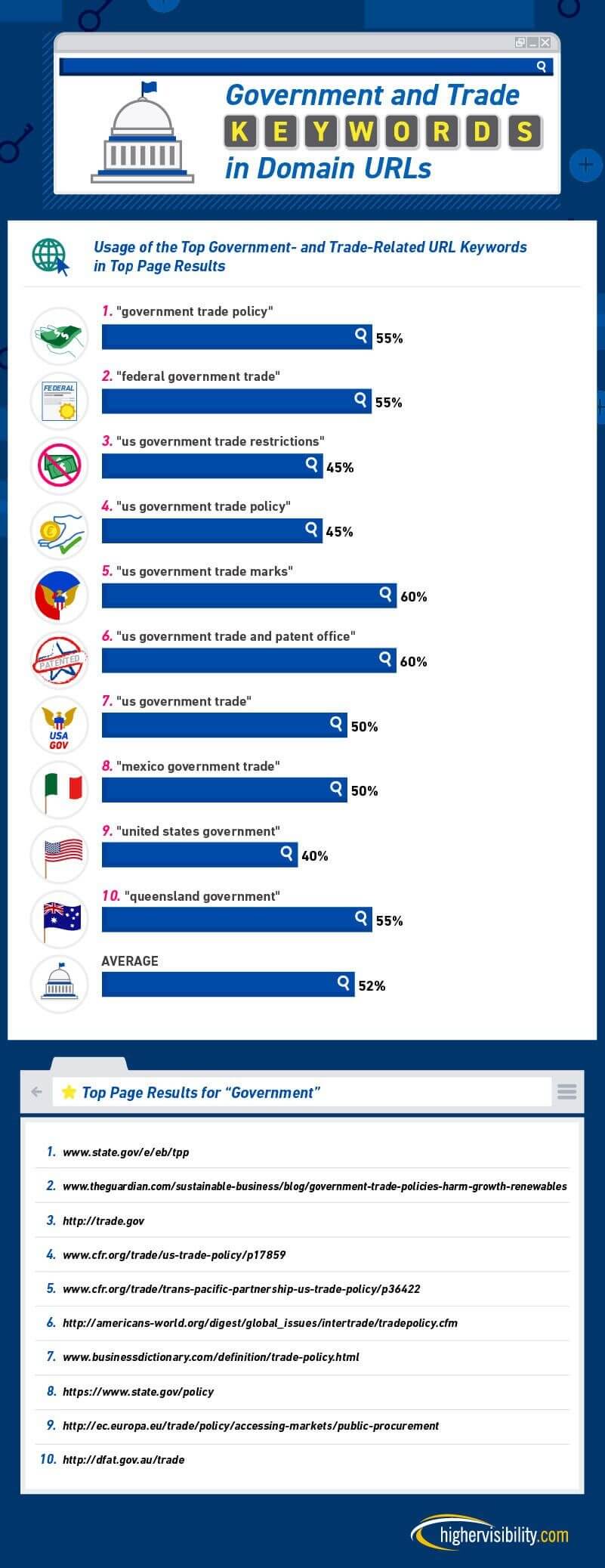
Out of all the verticals analyzed, top page results related to government and trade policy were the second to least likely to use these keywords in their URLs. 60 percent of the top page results for “us government trade marks” and “us government trade and patent office” used these keywords in URLs. All other keyword sets studied had between 40 and 55 percent of top page results that made use of these keywords in their URLs.
Finding the Best Keywords to Optimize Your Search Ranking
Clearly, the choice of keywords to use in a page URL, if any, can depend on the field you’re competing within, as well as the repute of your site. Well-recognized brands, like major card issuers or health information websites, may have less of a need to rely on URL keyword optimization than smaller sites seeking to compete. Nonetheless, the proper selection of keywords for your webpage addresses remains an important part of tailoring your site for success with search engines as well as users. A smart choice of keywords today can provide a long-term payoff in your search engine optimization efforts, giving you more of the traffic your site deserves.
Methodology
We used Wordstream.com to identify the top 10 keywords for 10 major industries. We employed Google, SEMrush, and other SEO tools to analyze the top page results and URLs for these keywords.
Fair Use Statement
Know someone who could benefit from the information presented on this page? Feel free to share this page and its contents for noncommercial purposes – just be sure to link back to this page and credit the authors.
